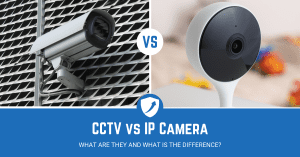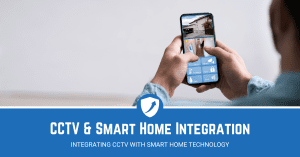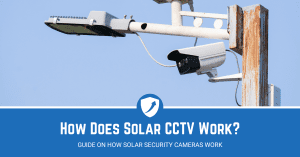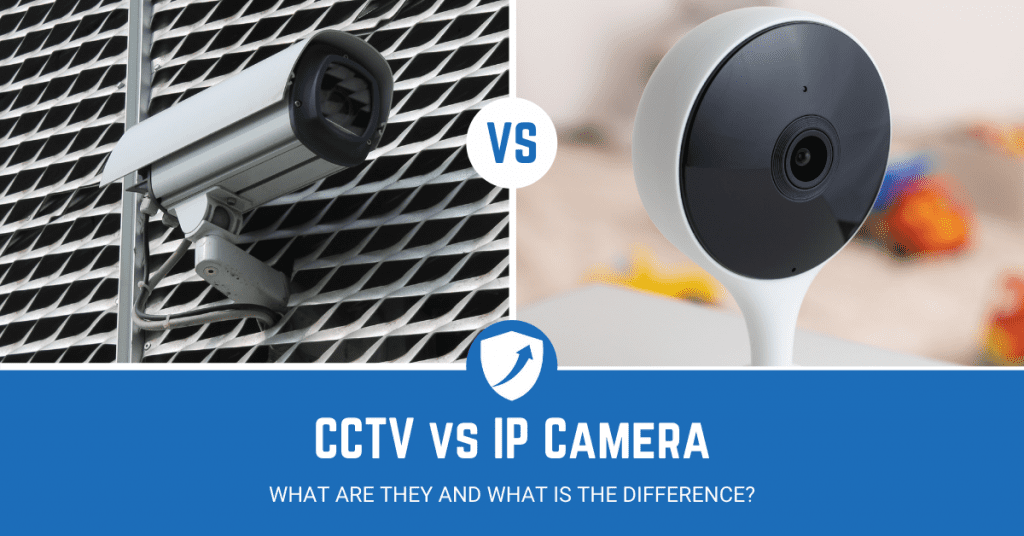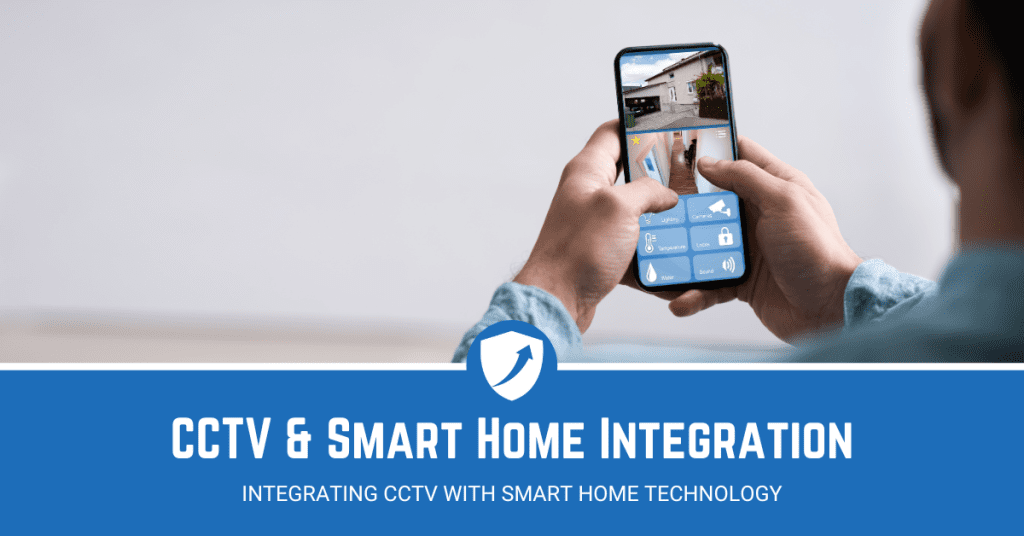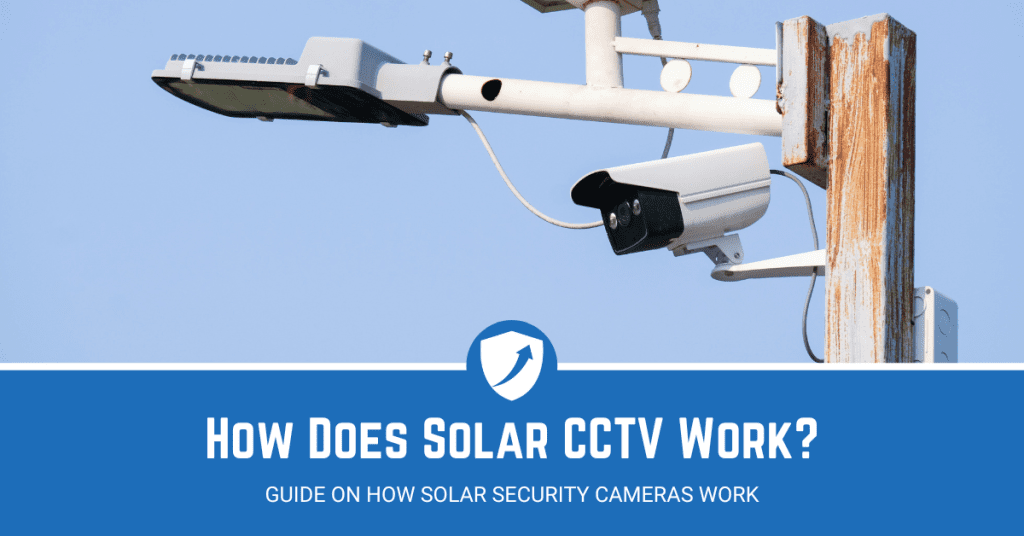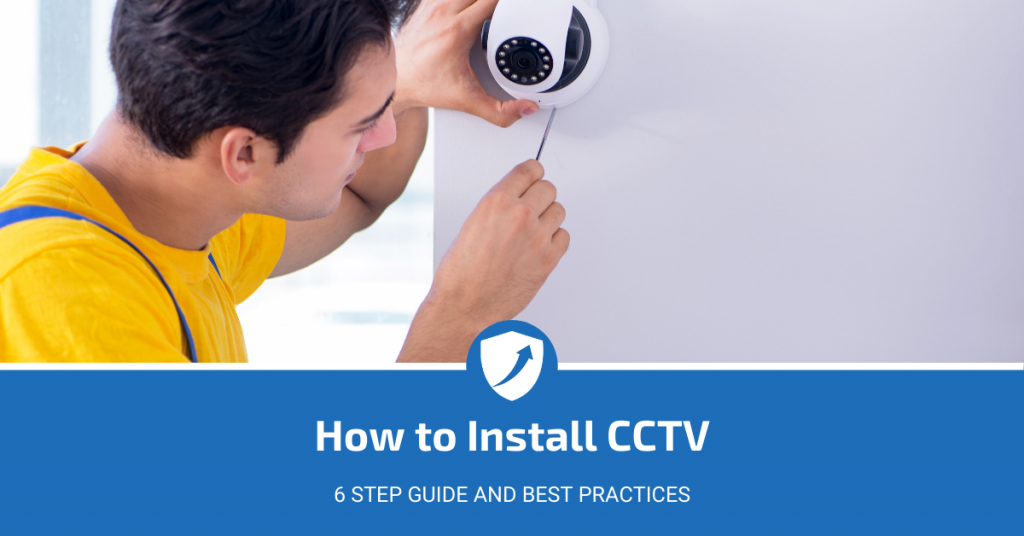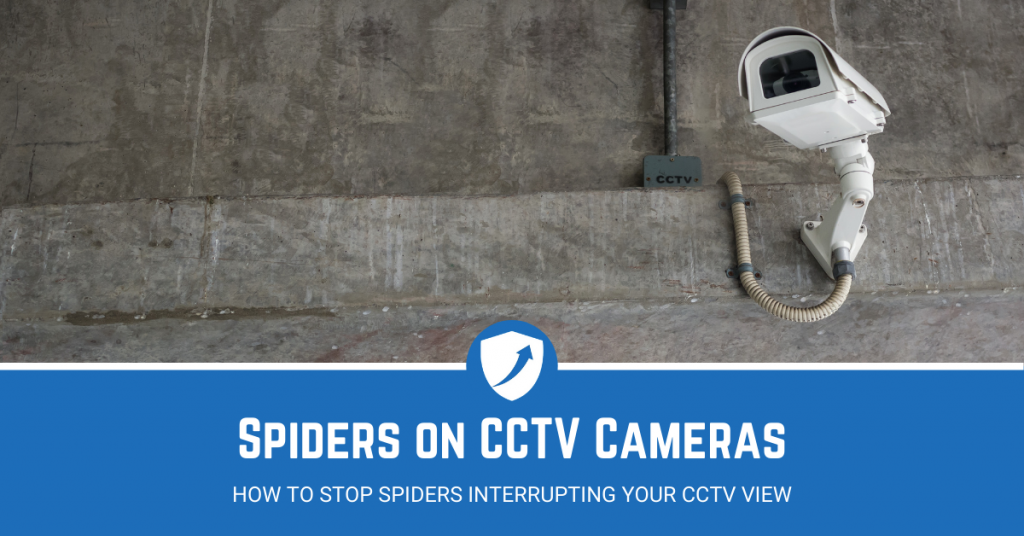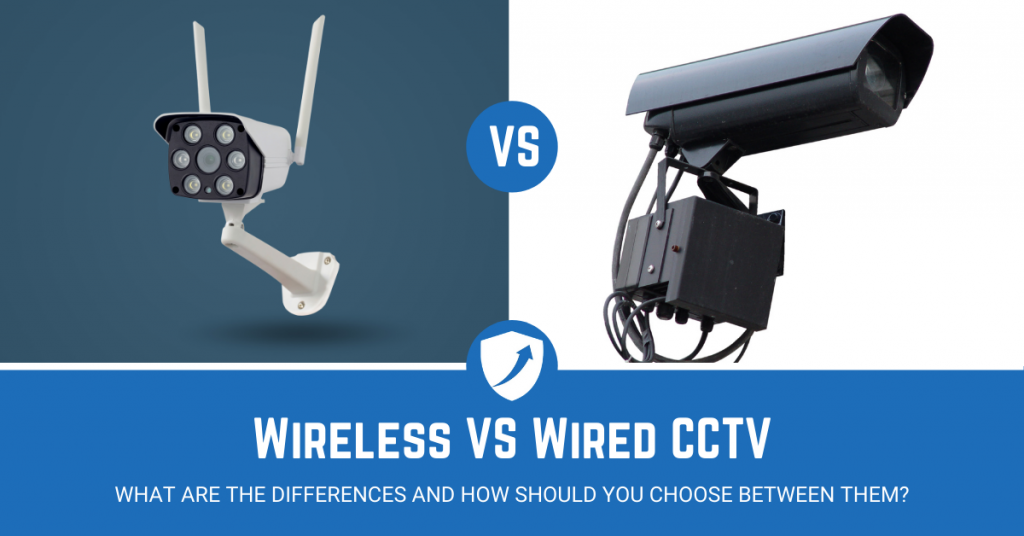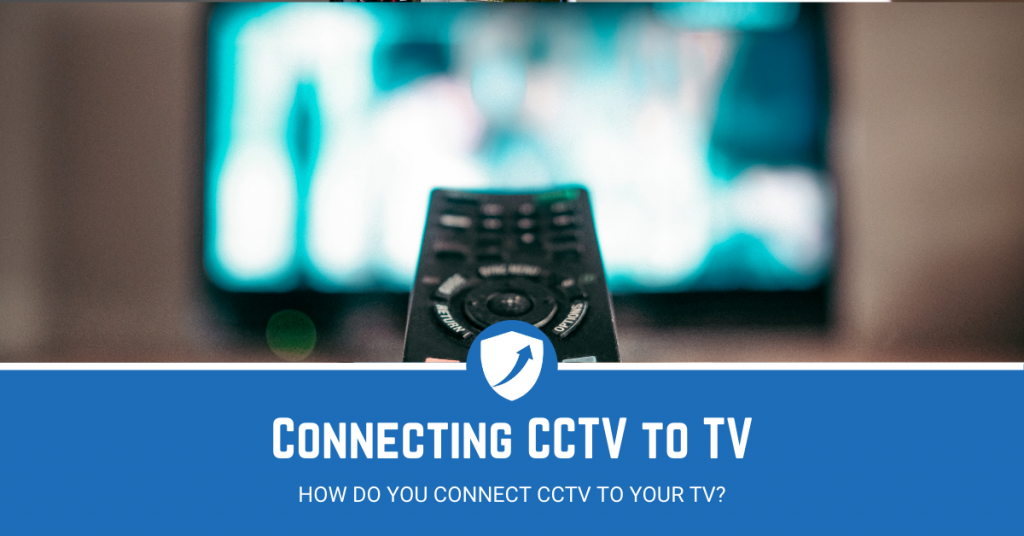In an era where sustainable solutions are not just a trend but a necessity, solar security cameras are emerging as a pivotal technology in home security systems.
This article aims to unravel the complexities of solar powered security cameras, providing homeowners with a clear understanding of their workings and the advantages they bring.
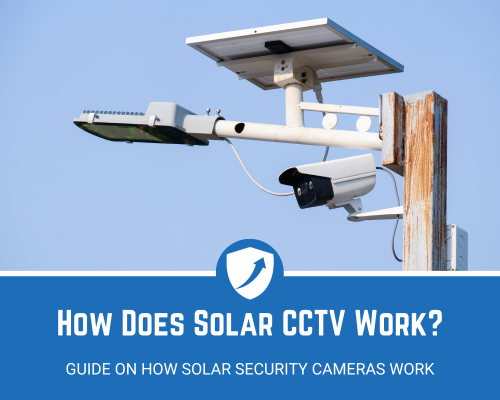
Key Takeaways:
- Eco-friendly and Economical: Solar security cameras reduce energy costs and environmental impact, providing a sustainable security solution.
- Flexible Installation: Suitable for diverse settings, these cameras offer ease of installation and adaptability to different locations.
- Considerations Required: Despite their benefits, it’s crucial to evaluate factors like weather influence, battery upkeep, and initial investment.
What's in this Guide?
What are Solar Security Cameras?
Solar security cameras harness the sun’s energy to power surveillance systems. This technology, although relatively recent in the realm of home security, has rapidly evolved to offer a robust and environmentally-friendly alternative to traditional wired systems.
Key Components of a Solar Security Camera
- Solar Panels: Convert sunlight into electrical energy.
- Batteries: Store the converted energy for continuous operation.
- Camera Unit: The surveillance component, often equipped with features like motion detection and night vision.
How Do Solar Security Cameras Work?
The core principle behind solar powered security cameras lies in the conversion of solar energy into electrical power. Here’s a step-by-step breakdown:
- Solar Panels: These panels consist of photovoltaic cells that absorb sunlight.
- Energy Conversion: The absorbed sunlight is then converted into electrical energy.
- Battery Storage: This energy is stored in batteries, ensuring the camera operates even when there’s no sunlight.
- Camera Operation: The stored energy powers the camera, enabling it to record and transmit surveillance footage.
Impact of Weather: It’s crucial to understand that the efficiency of solar powered cameras can be affected by weather conditions.
However, advancements in technology have significantly improved their reliability.
The best solar security cameras on the market today are weatherproof and still just as effective in low light winter months due to the efficiency of micro solar panel attached to them.
Types of Solar Security Cameras
There are various types of solar security cameras available, each catering to different surveillance needs.
| Type | Best for | Features |
|---|---|---|
| Fixed | General surveillance | Static field of view |
| PTZ (Pan-Tilt-Zoom) | Wide-area monitoring | Moveable lens for better coverage |
| Indoor | Interior monitoring | Smaller, less obtrusive design |
| Outdoor | Exterior monitoring | Weather-resistant, more robust |
Installation and Setup
One of the most appealing aspects of wireless solar security cameras is their ease of installation. Unlike traditional cameras, there’s no need for complex wiring or professional installation.
DIY Installation Tips
- Location: Choose a spot with maximum sunlight exposure.
- Height: Install at an optimal height to prevent tampering and ensure a broad field of view.
- Connectivity: Ensure the camera is within range of your Wi-Fi network for seamless connectivity.
The point at which this becomes complicated is if the solar cameras are being installed alongside a wider home security system.
If so, it’s worth consulting a professional to make sure it’s done correctly the first time.
Although it’s important to understand the cost of home CCTV installation before going ahead with any quotes.
Advantages of Solar Security Cameras
Solar powered security cameras offer several benefits, making them an increasingly popular choice among homeowners.
Environmental Benefits
- Reduced Carbon Footprint: By using renewable energy, these cameras contribute to a lower carbon footprint.
- Energy Efficiency: They utilize the abundant energy of the sun, reducing reliance on non-renewable power sources.
Cost-Effectiveness
While the initial investment may be higher, solar powered cctv cameras are more cost-effective in the long run due to minimal operational costs.
Flexibility and Ease of Installation
The wireless nature of these cameras allows for flexible placement and easy scaling of your home security system.
Reliability and Performance
Advanced battery technology ensures that these cameras remain operational even during cloudy days or at night.
Considerations and Limitations
Despite their numerous advantages, solar power security cameras have certain limitations that should be considered.
Weather Dependency
The performance of solar powered cameras can be influenced by geographic location and weather patterns. This is especially if the cameras are cheap and made with inferior technology.
Battery Life and Maintenance
Regular maintenance of batteries is essential to ensure consistent performance.
Upfront Costs
Solar powered security cameras may have higher initial costs compared to traditional systems.
Comparison with Traditional Wired Cameras
It’s important to weigh the pros and cons of solar versus wired systems based on your specific security needs.
In conclusion, solar security cameras offer a sustainable and efficient solution for home security. While they come with their own set of considerations, their benefits often outweigh the limitations, making them a valuable addition to any home security setup.
Factors to Consider Before Purchasing Solar Security Cameras
When considering solar powered security cameras for your home, it’s essential to evaluate several factors to ensure they align with your security needs and environmental conditions.
Key Considerations
- Budget: Assess the initial cost against long-term savings.
- Location: Evaluate sunlight availability in your area.
- Security Requirements: Determine the level and type of surveillance needed.
Evaluating Different Models and Brands
- Research features and reviews of various models.
- Compare the battery life and solar panel efficiency of different brands.
- Consider the integration capabilities with existing home security systems.
When to Opt for Solar Security Cameras
- Ideal for areas with ample sunlight.
- Perfect for locations where wiring is impractical or impossible.
- Suitable for environmentally-conscious homeowners seeking sustainable solutions.
Real-World Applications and Case Studies
Solar security cameras have been successfully implemented in various settings, demonstrating their versatility and effectiveness.
Case Study Highlights
- Rural Homeowner: Installed solar powered security cameras due to the lack of electrical wiring, reporting excellent performance and ease of use.
- Urban Resident: Chose solar security cameras for their environmental benefits and cost savings, noting their reliability even in less sunny conditions.
- Suburban Family: Integrated solar cameras into their existing security system, appreciating the flexibility and enhanced coverage.
Balancing Pros and Cons for a Sustainable Choice
In summary, while solar powered security cameras come with their own set of considerations, they represent a forward-thinking choice in home security.
Their environmental benefits, coupled with advancements in technology, make them a compelling option for homeowners.
Final Thoughts
- Solar security cameras are an excellent choice for those looking to combine security with sustainability.
- The initial cost is offset by long-term savings and environmental benefits.
- They offer a flexible and reliable solution to a wide range of security needs.
As we continue to embrace sustainable technologies, solar powered cameras stand out as a smart, responsible choice for modern home security.
By understanding their workings, benefits, and considerations, homeowners can make informed decisions that align with their values and security requirements.
For more insights into innovative security solutions and to explore a wide array of in-depth blogs covering everything from CCTV to home security, visit Upcoming Security’s Blogs.
Stay informed and make the best choices for your home security needs.


